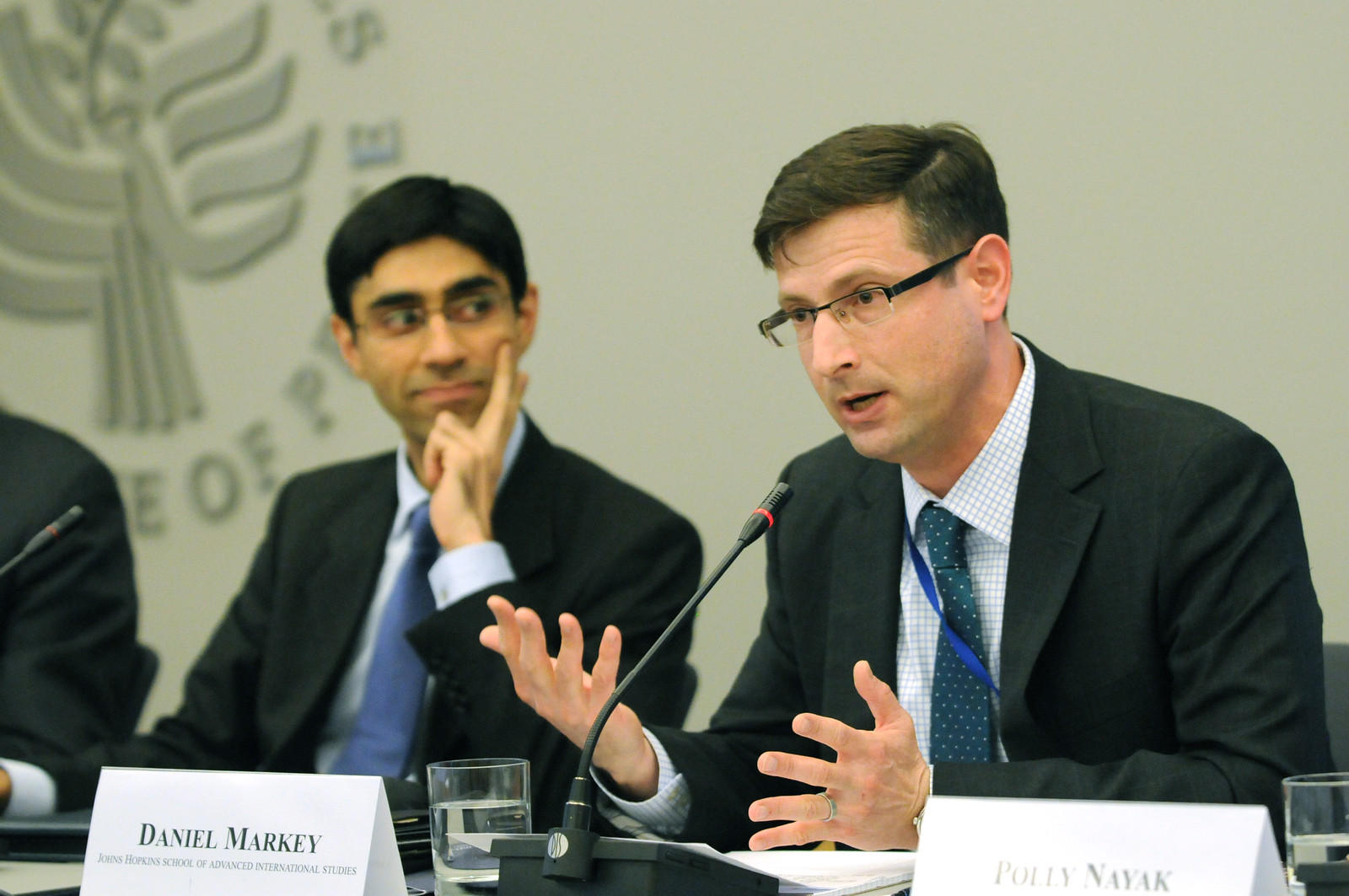India-Pakistan Crises and the American Role
How Has Washington Intervened and Can it Act Now?
Read the Event CoverageEight days after the prime ministers of India and Pakistan met suddenly in December to renew diplomatic dialogue between their countries, a squad of guerrilla fighters, apparently from Pakistan , disrupted the effort with an attack on India’s Pathankot air force base. The governments quickly postponed a planned meeting of their foreign secretaries. A pattern of such crises has recurred over the past decade and a half, and the United States often has sought to quietly mediate to avoid war between the nuclear-armed neighbors. What lessons can we learn from those experiences, and how should U.S. diplomats prepare for future disruptions?

A panel of scholars and analysts who have helped manage U.S. relations in South Asia joined USIP’s Moeed Yusuf to examine these and related issues. They assessed the Pathankot attack and past crises, including roles the United States can play in mediating them. The discussion addressed changes in the India-Pakistan relationship since the 2008 attack by Pakistani guerrillas on Mumbai, and prospects for regional relations as the two sides respond to Pathankot and debate the renewal of a comprehensive dialogue.
Participants
Daniel Markey
Director of Global Policy Program at Johns Hopkins School of Advanced International Studies
Polly Nayak
Independent Consultant
Edward Wittenstein
Executive Director of Yale University Johnson Center for the Study of American Diplomacy
Moeed Yusuf, Moderator
Director for South Asia Programs, U.S. Institute of Peace



